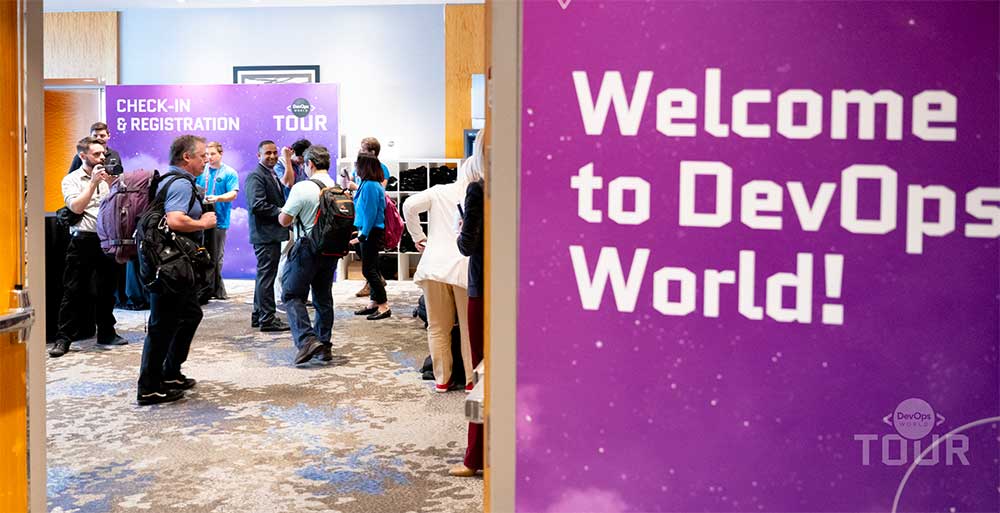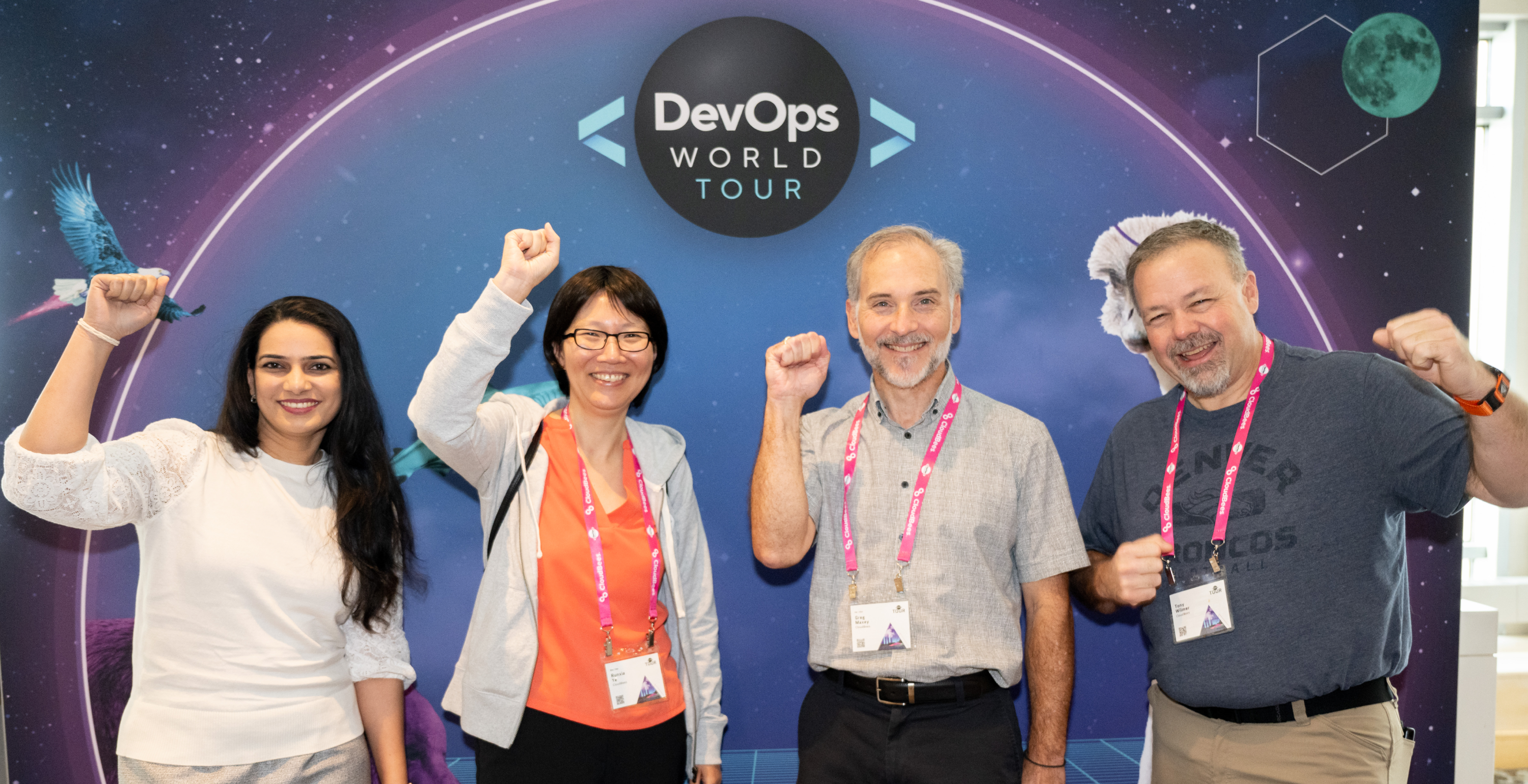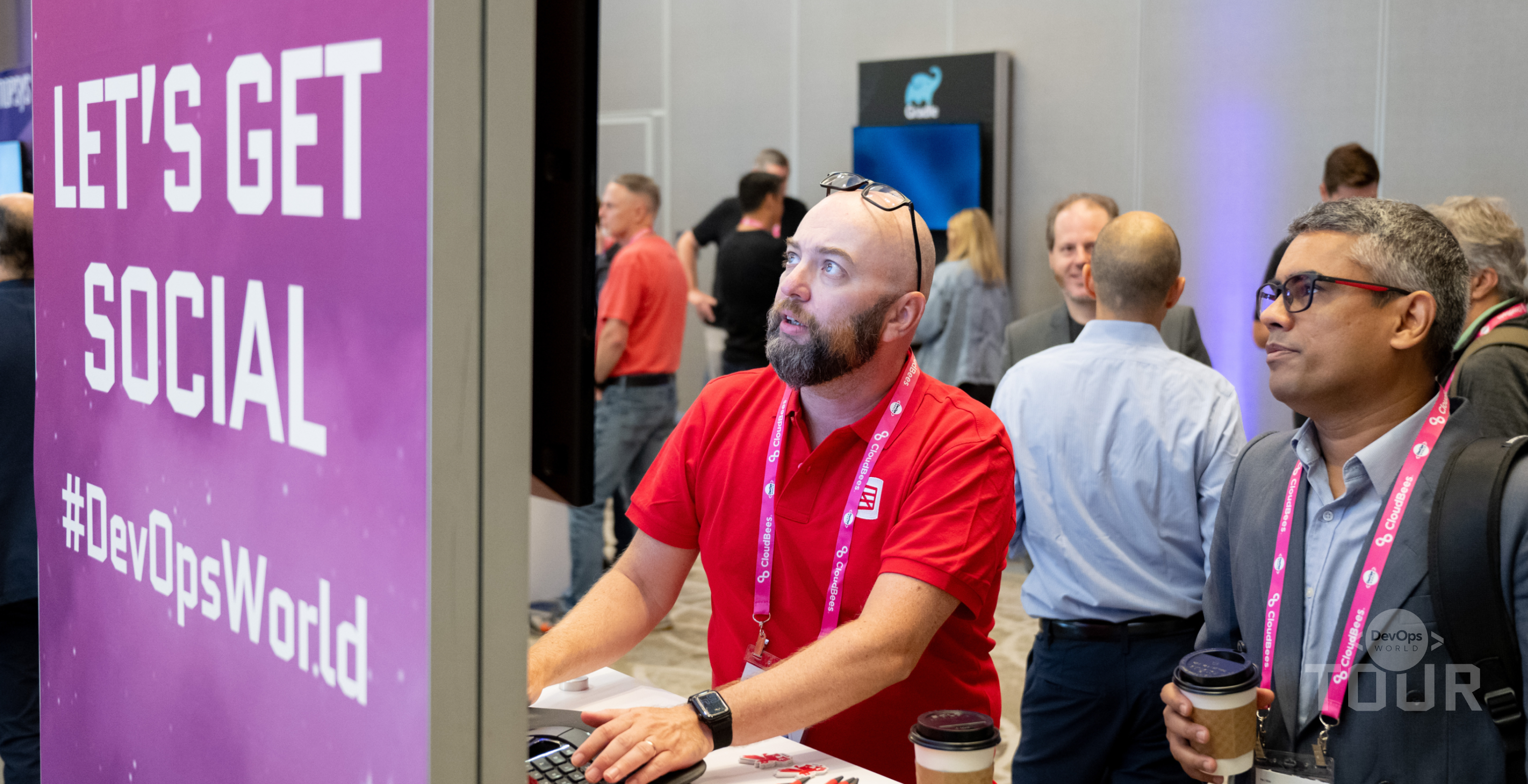
DevOps World 2023 NYC Area Recap: A Gathering of Thought Leaders and Practitioners

DevOps has become mainstream in modern software delivery, and the NYC Area DevOps World event provided an ideal platform for thought leaders, practitioners, and contributors to share their experiences, challenges, and solutions. The event aimed to explore the evolving DevOps landscape and provide insights on how organizations can navigate digital transformation to achieve better outcomes. The sessions featured a diverse range of topics, including DevSecOps, Open Source, Digital Twins, and more. We’ll be covering the insights and learnings of this event, showcasing the value it had for developers, DevOps engineers, and technical people alike.
Modern Software delivery was a central theme at the event, with speakers discussing the need to adopt agile methodologies, automation, and continuous delivery to accelerate software delivery. The focus was on reducing time to market, enhancing customer experiences, and achieving better business outcomes. Attendees learned about the importance of creating a culture of experimentation, feedback, and continuous improvement to stay competitive in today's fast-paced digital economy. Speakers highlighted the challenges in implementing DevSecOps in legacy systems, emphasizing the need for collaboration between developers, security professionals and other stakeholders to ensure security-first mindset. Attendees learned about vulnerability prioritization and the use of software bill of materials (S-bom) for compliance and risk management.
Keynote: Unveiling the Future of Software
Anuj Kapur, the CEO of CloudBees, opened the event with an insightful discussion on the current state and future of the software industry. He emphasized the vast potential of AI and highlighted the significance of software in conjunction with hardware. Kapur acknowledged the challenges within the DevOps industry and presented a compelling argument for prioritizing the enhancement of developer productivity. Furthermore, he shed light on the advancements in aviation and underscored the profound impact of emerging technologies such as GenAI. Watch the keynote now!
Go Big, Say Yes! Ready to Fight: Jenkins Reborn.
People have relied on Jenkins® for years. It's been the open-source go-to tool for continuous integration and delivery for years. In this session, you’ll learn more about the biggest performance and scalability update for Jenkins in a decade. Jenkins has been working out. It’s ready to move fast and go big. Jenkins is a new kind of hero for a new age. It’s trained, conditioned, and ready to take on this new era of challenges without losing the Jenkins functionality you know and love. Jenkins is ready to rumble.
In this discussion, it centered around recent advancements in Jenkins, the widespread tool used for managing software releases. Shawn Ahmed and Runxia Ye announced the introduction of active-active high availability for Jenkins controllers, workspace caching and a new feature called Pipeline Explorer. These innovations aim to streamline software development operations, improve system resilience, enhance developer experience, and boost overall productivity. Watch the replay here!
Go Big, Say Yes! Chapter 2: YES Is The Answer
What if you could support developer autonomy and choice of tooling without compromising productivity, governance, security, and scalability? What if you had the DevSecOps platform that let you say YES to all of it? CloudBees is ready to deliver that platform, so you can say YES to going fast while also staying safe. You can say YES to creating your finest code while also keeping teams consistent. You can create the golden paths that set developers free. Say YES to having your cake and eating it too. Say YES.
 Eric Billingsley provided a detailed walkthrough of a pre-release product, pointed out its features including a graphical user interface to edit workflows, a system to manage secrets, audit logs of every change in the system, along with integrations and a set of policies. The speaker emphasized the rapid evolution of this product. Watch the demo here!
Eric Billingsley provided a detailed walkthrough of a pre-release product, pointed out its features including a graphical user interface to edit workflows, a system to manage secrets, audit logs of every change in the system, along with integrations and a set of policies. The speaker emphasized the rapid evolution of this product. Watch the demo here!
Security and Risk Management - Security and Compliance in the SDLC
Shift Left was supposed to empower developers and speed delivery. Instead, verifying security and compliance is complex, time-consuming and slows release velocity. Requiring developers to wade through alert storms from more tools isn’t empowering and doesn’t get products to market more quickly. Fortunately, there are better approaches.
The panel covered the following topics: Why “shift security everywhere” maps better to DevOps philosophes How to move from checklist to risk-based decisions How to effect change that connects security, risk, and operations to value
The panel discussed the challenges of implementing ShiftLeft and DevSecOps in large organizations, their experiences with vulnerability management, compliance and the need for continuous risk monitoring. The potential risks of generative AI in software development were also considered. The discussion emphasized the importance of a security-focused mindset, understanding and managing risks, and the ongoing journey towards having automated compliance. Watch the pan discussion now!
Belonging in DevOps: The Importance of Intersectionality
The event wasn’t just about technology, but also how people that make up organizations, and what value they bring. This discussion was organized by the founders of Women in DevOps and featured a panel discussion on intersectional diversity in the DevOps field. The conversation revolved around issues related to low representation of women in tech, especially in DevOps.
The panelists, Ademusoyo; Lesley; Kristie; Sabrina, all of whom are leading professionals in this field, emphasized the need for a more inclusive work culture in tech and DevOps, stressing the importance of listening, acknowledging different perspectives, creating safe environments for diverse voices, and retaining diverse talents. They highlighted the role of technology in breaking down barriers and proposed concrete recommendations for organizations to move beyond tokenistic investments in diversity. Watch this empowering talk here.

Wrapping up the DevOps World 2023 Event in the NYC Area: Final Thoughts
The DevOps World 2023 NYC Area event provided valuable insights, practical knowledge, and networking opportunities for attendees. The event emphasized the need for a security-first mindset in DevOps, collaboration between team members, automation in compliance and security processes, and the integration of compliance policies into the development pipeline. Attendees learned about implementing DevSecOps in legacy systems, vulnerability prioritization, the use of software bill of materials, digital twins in DevOps, software supply chain management, and much more. The value of secure software development frameworks and upskilling team members were also emphasized. Overall, the event provided a comprehensive overview of the latest trends, technologies, and best practices for modern software delivery and security in DevOps. Watch the session now!
© 2024 DevOps World or its affiliates. All rights reserved.